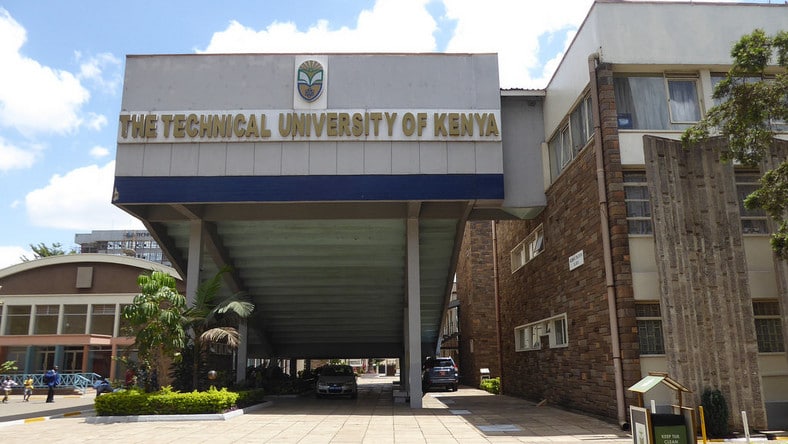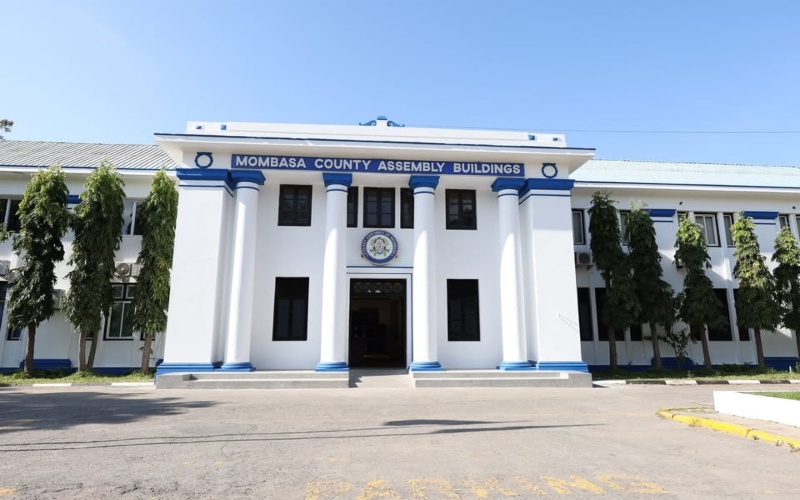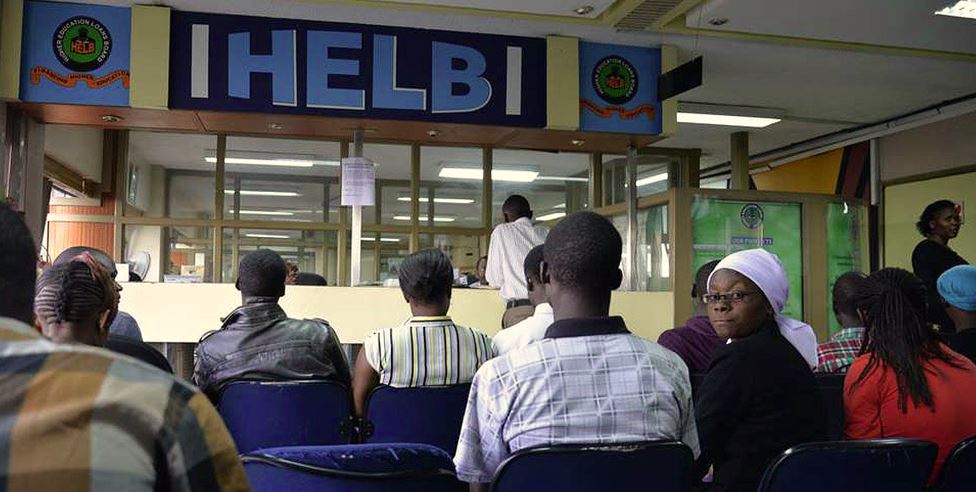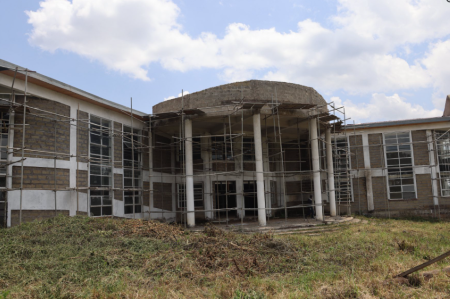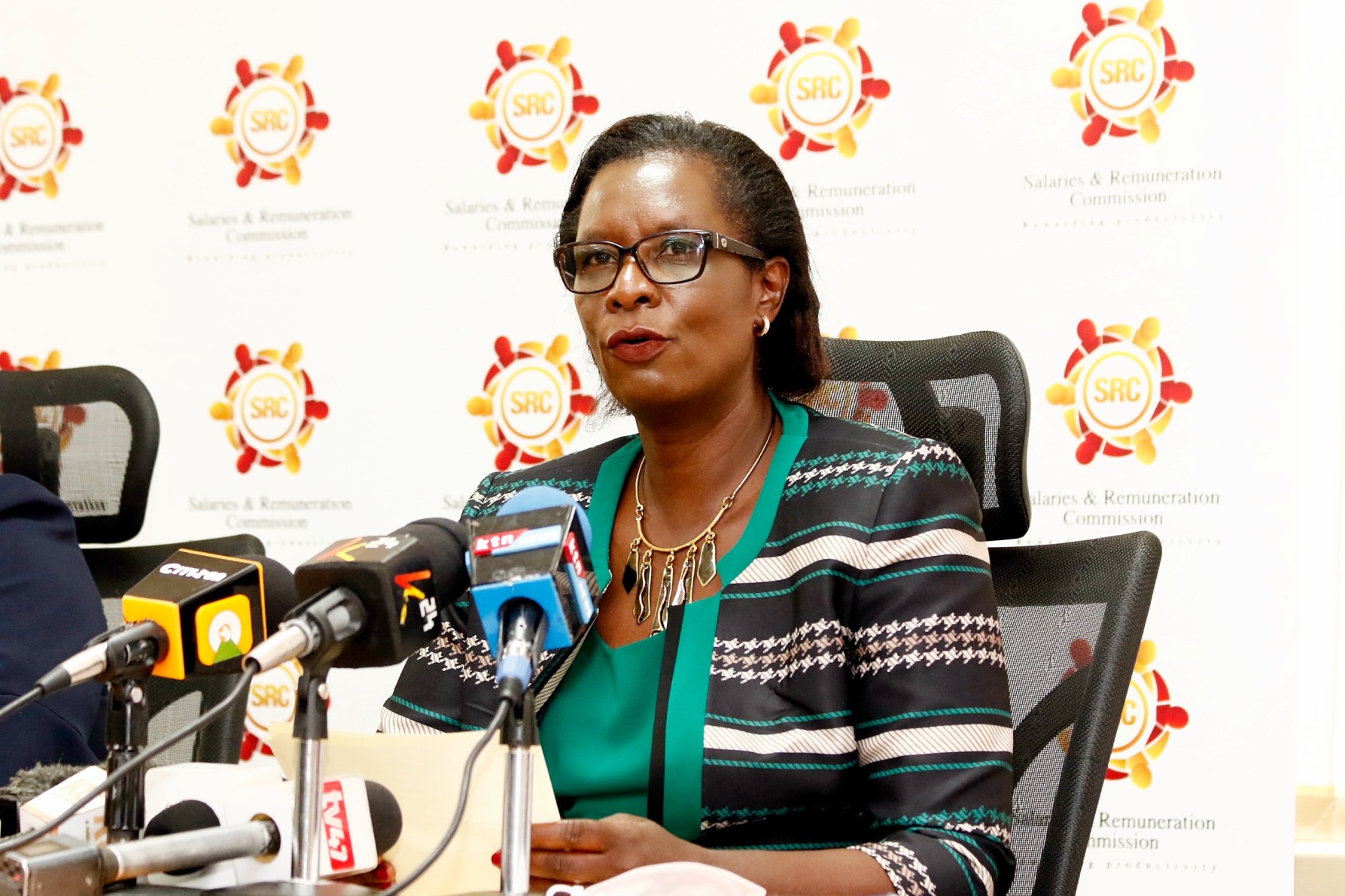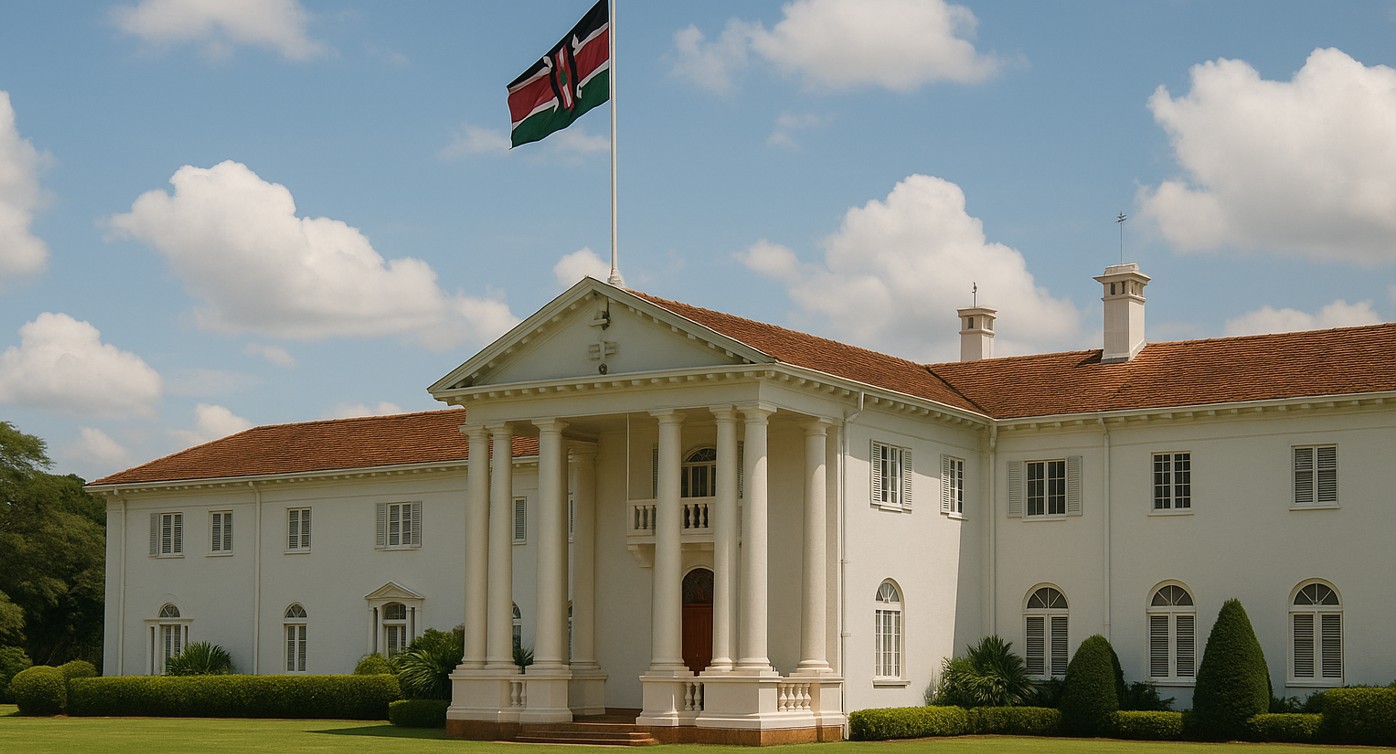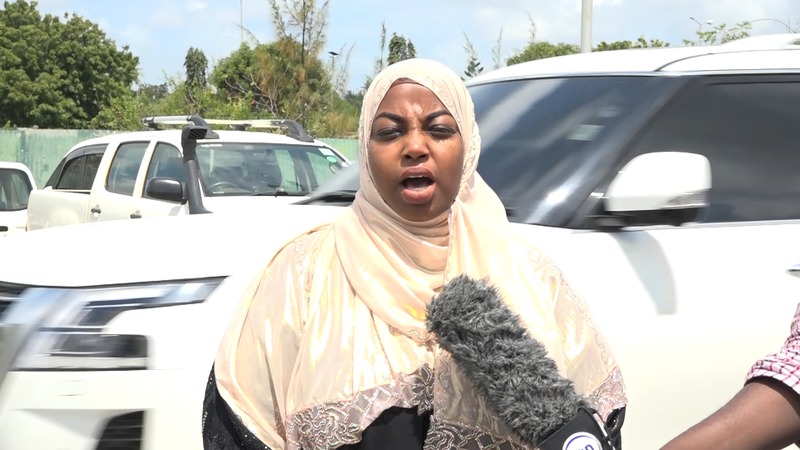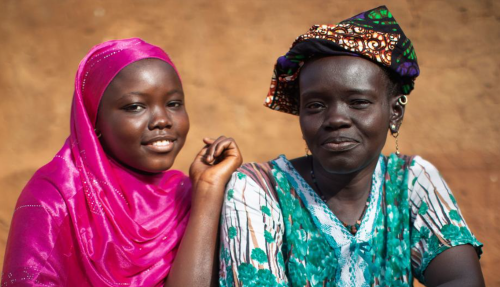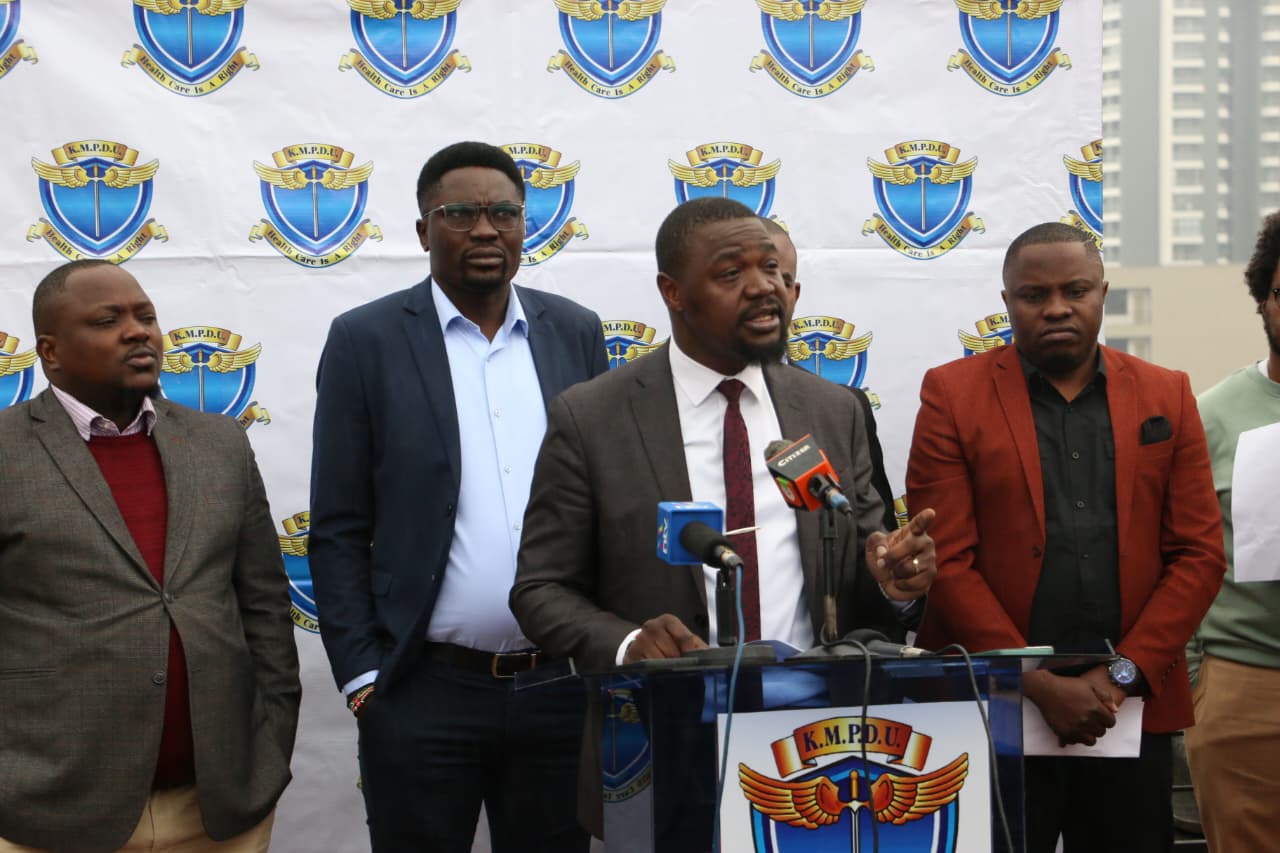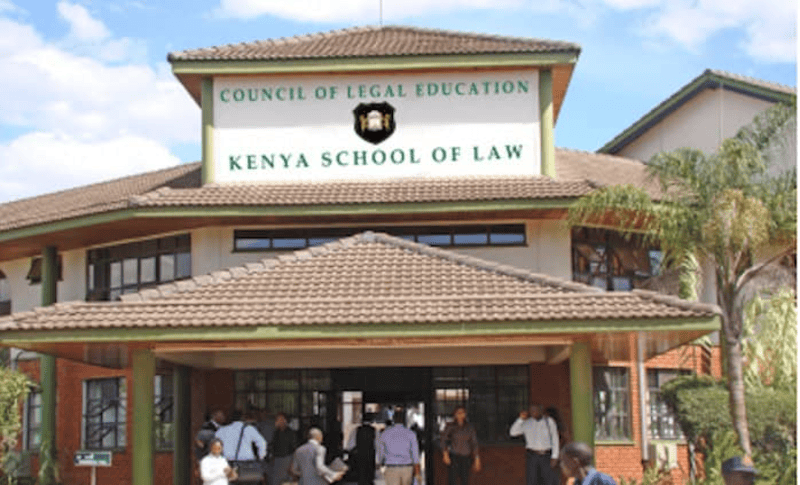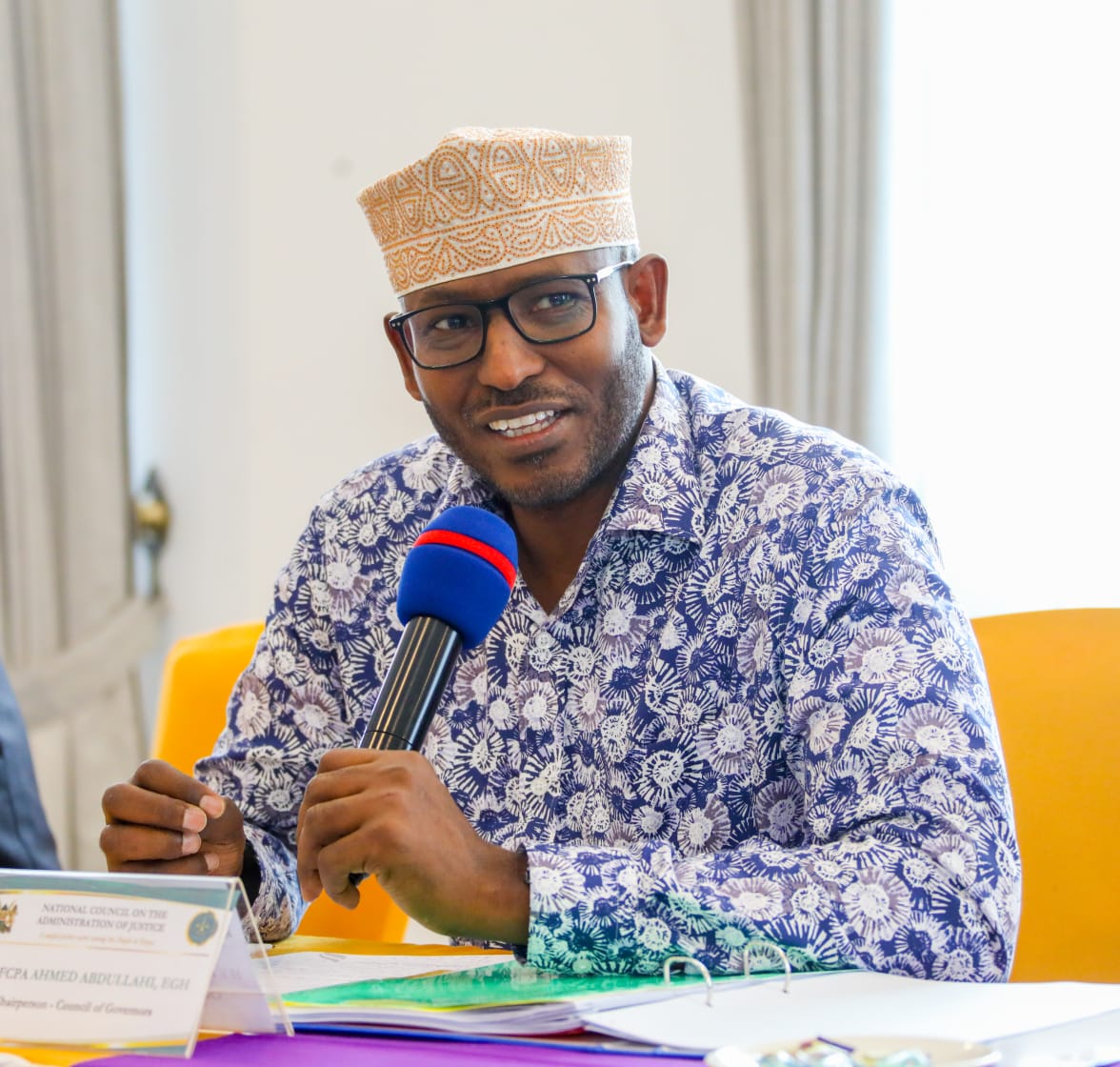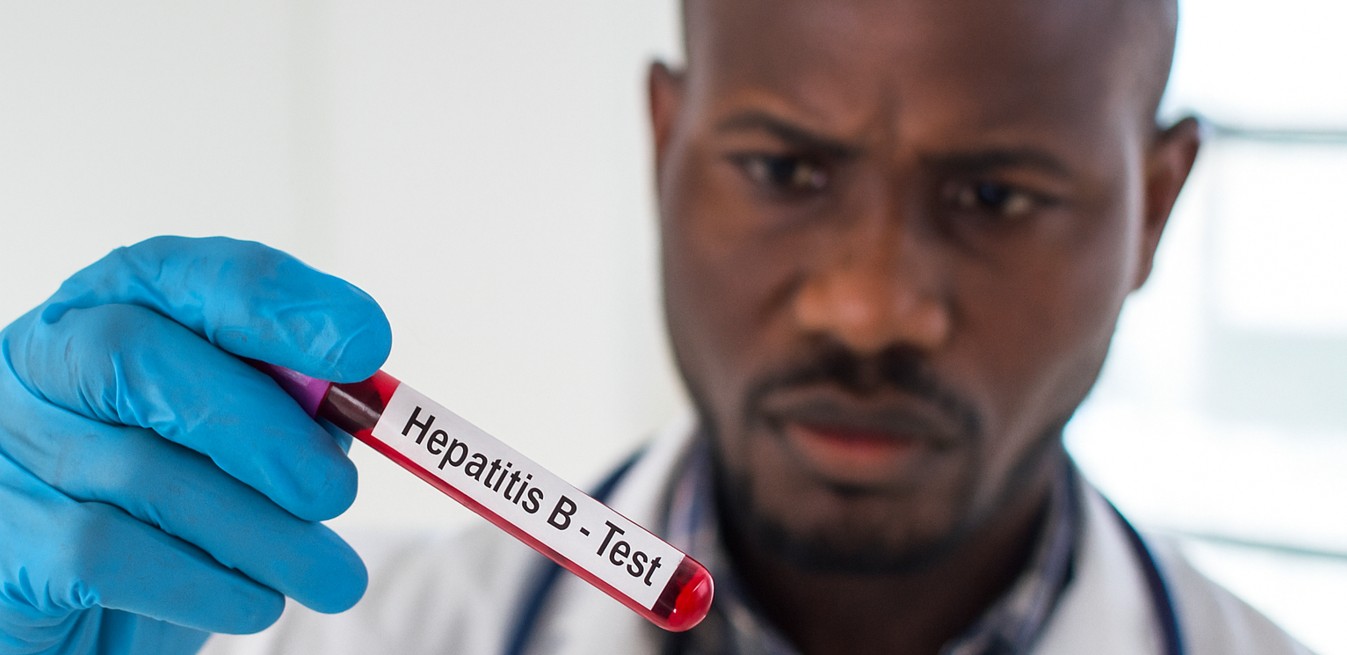How climate change fuels rise in gender-based violence in Garissa
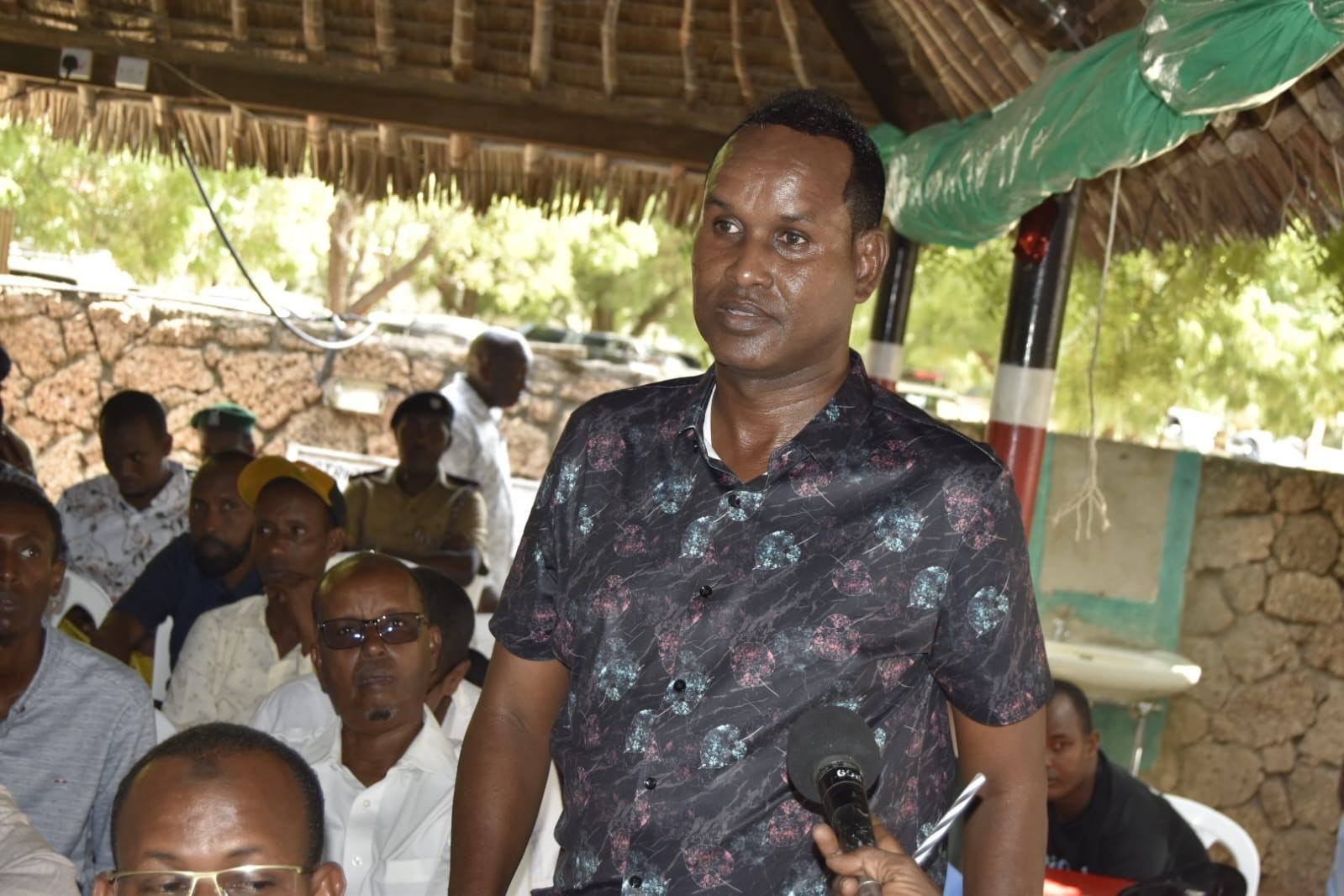
The civil society group also blamed the region's nomadic herding practices for escalating sexual abuse among young girls who should otherwise be in school.
Frequent droughts and ongoing food insecurity in Garissa County are disproportionately affecting women and girls, who face heightened risks of gender-based violence (GBV), a GBV Technical Working Group was told during a session in Garissa town.
In a memorandum presented by a Garissa-based civil society group, it was revealed that women and girls are bearing the primary responsibility of fetching water, food, and firewood—often from distant areas during drought seasons—thereby exposing them to the risk of rape and other forms of sexual violence.
More To Read
- Nearly entire global population exposed to harmful environments - World Bank
- Kenya hit hard as therapeutic food supplies dwindle
- Proposed Bill set to mandate solar panels on new homes
- Climate change: How global water crisis could cost trillions
- UN report: Gains in ending FGM at risk unless Kenya scales up action
- Explainer: What is the threshold for famine and how hunger is tracked
“During this climate crisis, more girls are dropping out of school to help with household chores, only to be married off at an early age,” the group stated.
The civil society group also blamed the region's nomadic herding practices for escalating sexual abuse among young girls who should otherwise be in school.
“Limited access to education and economic opportunities for girls and women is lower in Garissa than the national average due to cultural norms, poverty, and the demands of pastoralist lifestyles. This lack of education further limits women’s economic prospects and their ability to participate in decision-making processes,” the memorandum read.
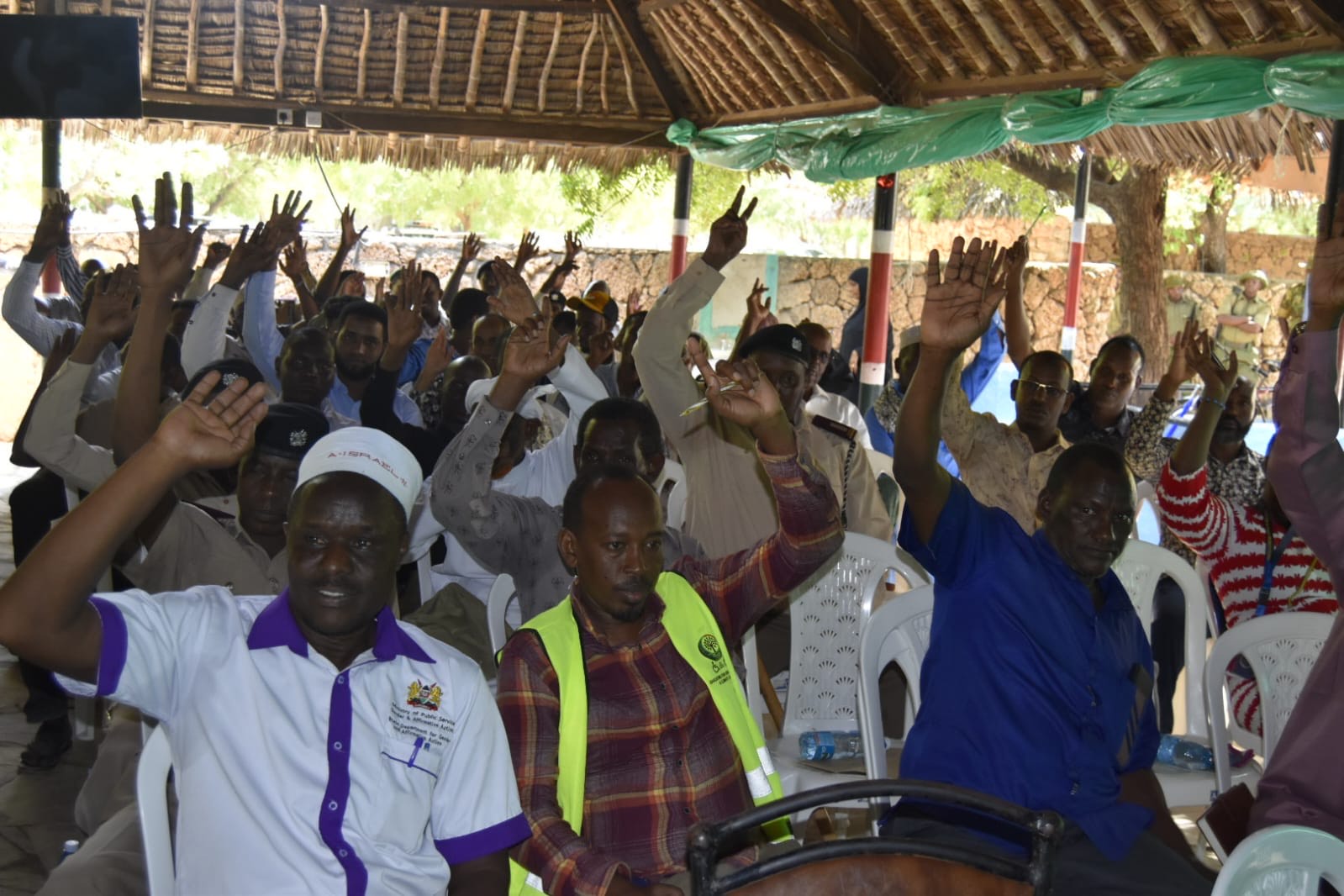 Residents of Garissa who attended the session to present their opinions on the fight against GBV. (Issa Hussein)
Residents of Garissa who attended the session to present their opinions on the fight against GBV. (Issa Hussein)
The group further criticised the traditional dispute resolution mechanism known as Maslah, which they claimed often leads to lenient punishments for perpetrators and denies justice to survivors.
Concerns were raised over the persistence of harmful practices such as female genital mutilation (FGM).
The civil society group called for urgent intervention and a strong response from law enforcement agencies and community leaders to tackle these emerging threats. They urged the task force to scrutinise the role of the Alternative Justice System (AJS) to ensure it does not undermine the rights of survivors or foster impunity for perpetrators.
In the memorandum, presented by Mohamed Khalif Nunde, Chairman of the Garissa Civil Society, the group called for the strengthening of legal frameworks and enforcement mechanisms, promotion of gender equality in education and economic opportunities, and the dismantling of harmful cultural and social norms.
“To effectively address gender issues and combat GBV in Kenya, particularly in Garissa County, we urge the government to act on the concerns raised and implement the recommendations we have presented,” said Mohamed.
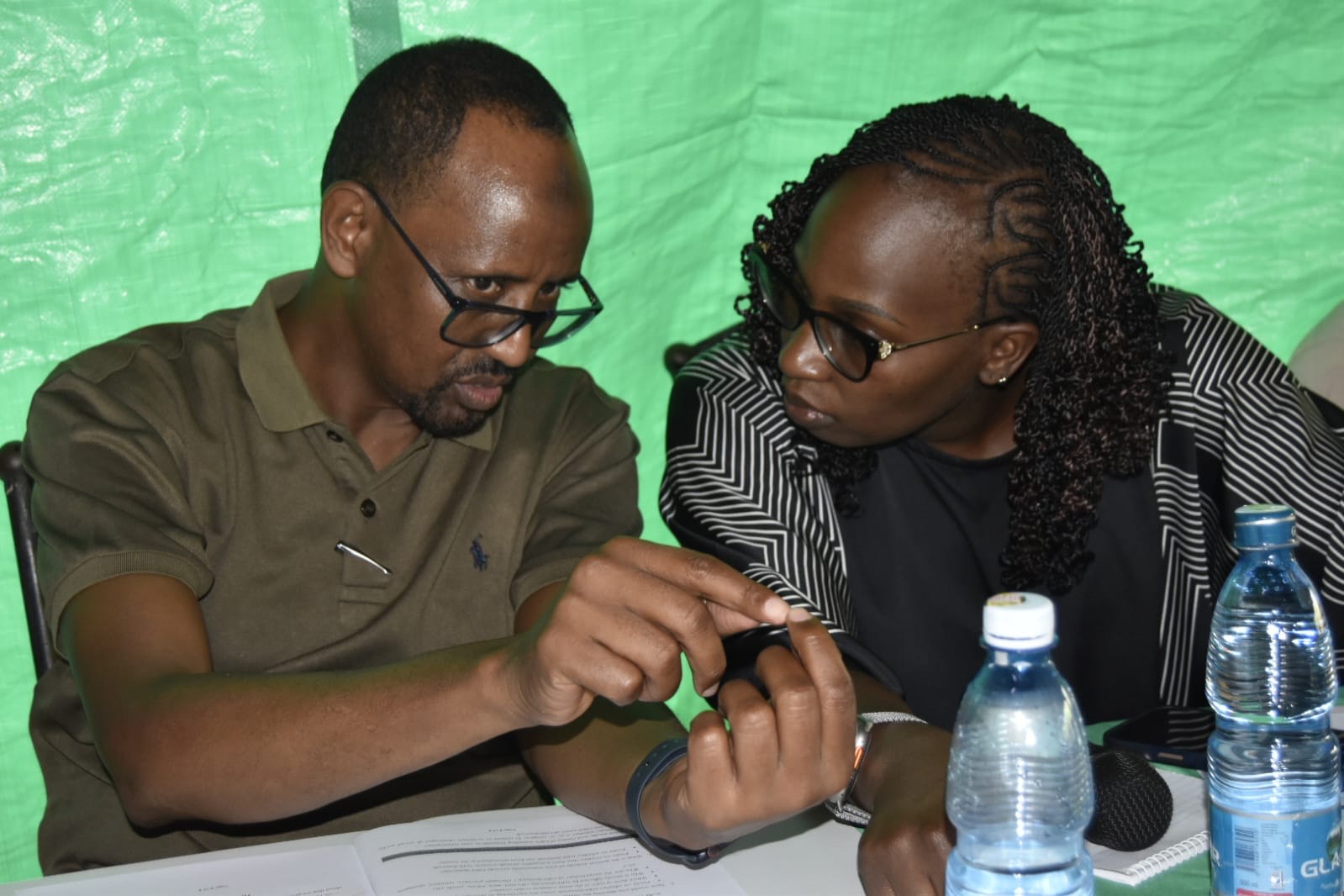 Technical Working Group on Gender Based Violence chair, Dr Bashir Issack, has a word with LSK president Faith Odhiambo at the forum held at Garissa government guest house. (Issa Hussein)
Technical Working Group on Gender Based Violence chair, Dr Bashir Issack, has a word with LSK president Faith Odhiambo at the forum held at Garissa government guest house. (Issa Hussein)
Zamzam Mohamed, a child rights defender, expressed regret that cases of GBV continue to rise despite numerous intervention programmes previously launched by various stakeholders in the region.
“We need to reinforce our legal frameworks and ensure strong enforcement. Only the fear of imprisonment can restore sanity,” she said.
Human rights activist Muktar Dahir echoed these sentiments, calling for the implementation of comprehensive awareness campaigns and community-led initiatives to combat rampant FGM and early marriages.
Many speakers acknowledged the efforts of the government and non-governmental organisations to address GBV in the region. However, they noted that deeply entrenched socio-cultural practices continue to pose significant challenges to the complete eradication of GBV.
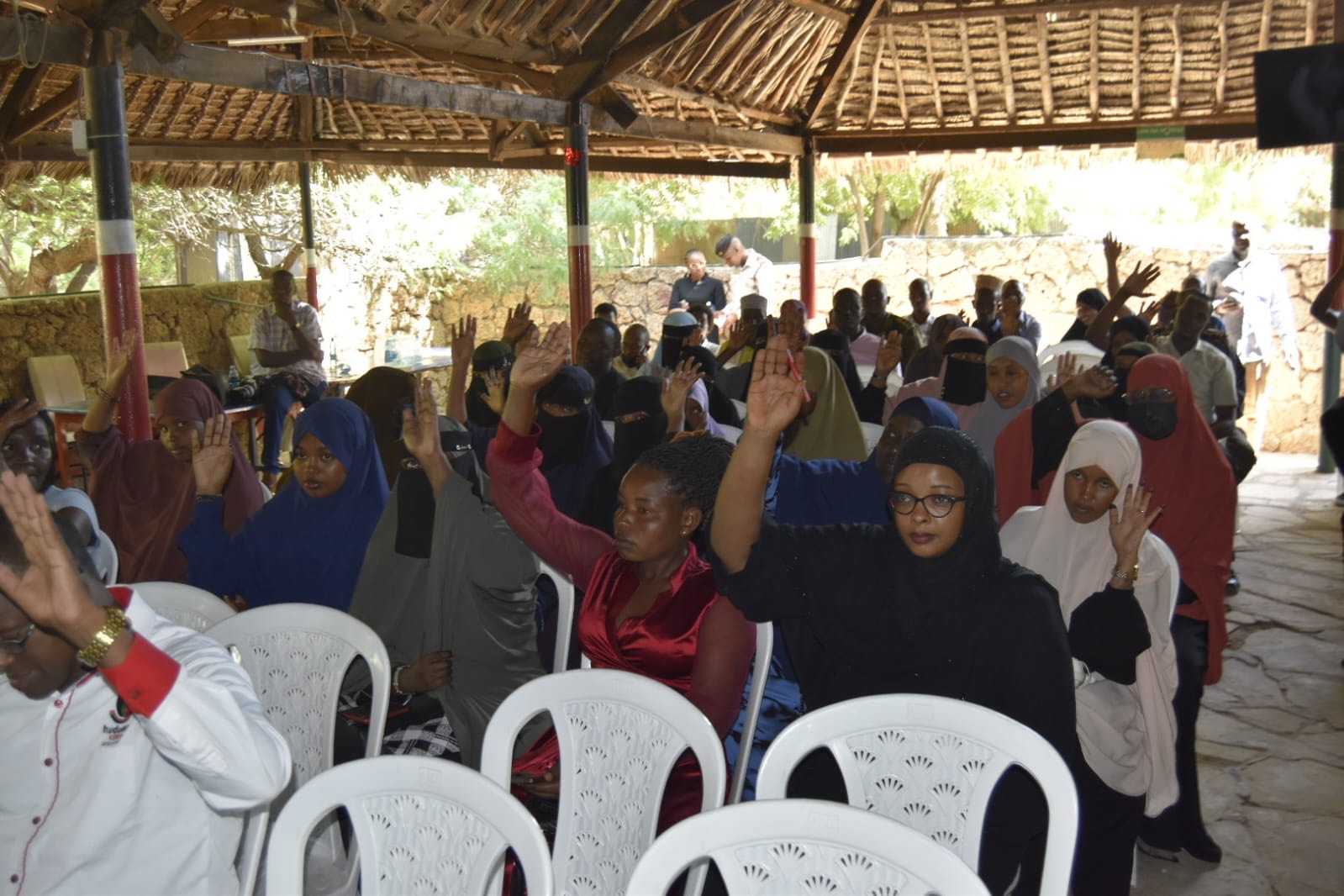 Residents of Garissa who attended the session to present their opinions raise hands continue with their commitment to fight against GBV. (Issa Hussein)
Residents of Garissa who attended the session to present their opinions raise hands continue with their commitment to fight against GBV. (Issa Hussein)
Dr Bashir Issack, Chair of the Technical Working Group on GBV, urged Garissa residents and the civil society to maintain their relentless advocacy against GBV. He assured attendees that their views and recommendations would be considered in the formulation of robust government policies to address the rising GBV cases nationwide.
In Kenya Gazette Notice No. 109 of January 10, 2025, the President appointed a Technical Working Group on GBV, including femicide, to assess, review, and recommend measures to strengthen the country’s policy, legal, and institutional response to GBV.
Top Stories Today
